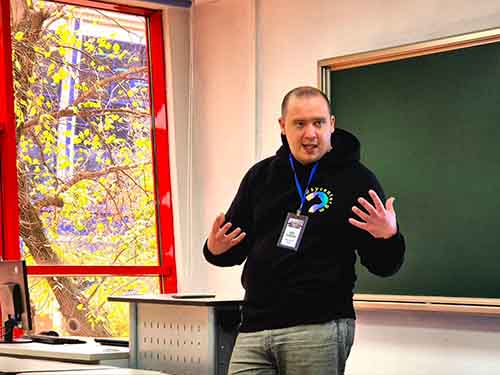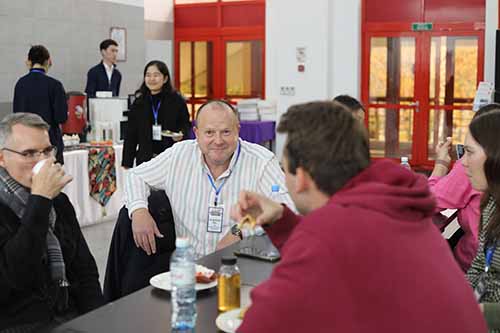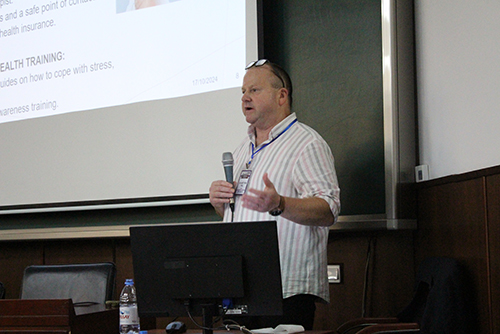Over the past decade, mental health has gained significant attention around the globe. In recognition of this, many countries hold annual conferences to raise awareness of mental health. On Oct. 17, one such conference was held at KIMEP.
Discussions organized by the College of Human Sciences and Education featured issues among children, parents, students, and adults in various stressful environments—essentially, any context involving human interaction. Key topics included the influence of school on children and the importance of work-life balance for employees. Around 50 people attended, including students, faculty, and professionals from both the medical and educational fields.
About 4.6% of Kazakhstan’s people have a reported mental health issue, according to a recent World Health Organization report. But the nation remains unable to treat many potential patients because of a lack of mental health professionals, the report stated.
Yuriy Plotnikov, from the Wunder Academy spoke about the mental health challenges faced by children and teens.

Health is a complex subject, and it consists of physical well-being, as well as the mental one, Plotnikov said. Mental health of children is largely shaped by what surrounds them, starting from a very young age.
A poor mental state stems from several factors that take place in family and at school, Plotnikov said. People related to children often treat them unfairly: they tell how things should be without explaining why. This discrepancy between a child’s thoughts and what they are told to believe creates cognitive dissonance.
To counter this, Plotnikov said parents and teachers should involve children in decision-making whenever feasible and support the development of healthy habits in a trauma-free way.
“Another significant factor is the lack of fundamental freedom,” he said in Russian. “Children often don’t have a choice in matters such as education or healthy eating.”
Plotnikov said this teaches children to do and think what they are told to do and think.
Parents often forget, Plotnikov added, that children did not choose to be born and that their opinions should be respected, not dismissed.
Addressing problematic situations in Kazakhstan, Plotnikov said people often view families as either untouchable or believe that negligent parents should lose custody altogether.
According to Plotnikov, the most effective solution to abuse in families or irresponsible parents is in independent social services. Their work should be deeper and more meaningful. This includes work with parents themselves and with people in direct contact with problematic families, that is, classmates and their parents.
In essence, preventing the deterioration of mental health at a young age is far easier than addressing it later in life.
The event also featured a discussion led by Thomas Jose, a senior manager at Beiersdorf, focusing on mental health in the workplace, another substantial period in people’s lives.
Managers need to notice changes in the mental state in employees and ways to offer help, Jose said.
“The first step for a manager is to acknowledge that work can be hard and stressful,” he said.

Beiersdorf actively seeks to reduce workplace stress by providing employees with easy and free access to independent psychological services.
The power of empathy, listening, and observation is often underestimated, he emphasized that transparent and sincere communication between staff and management is vital for maintaining a calm work environment.
“To be an effective leader, you need to be kind and mindful of those you lead,” said Jose, adding personal practices such as regular exercise and meditation can help prevent burnout.
The event left attendees with a deeper understanding of mental health at various stages of life, and how small changes in daily interactions can make a big difference.
“The time for the consolidation of good people has come, and now we need to work on the enhancement of all human lives,” said Viktoriya Egorova, one of the seminar’s participants—a specialist in healthcare. “We came here to do just that.”

